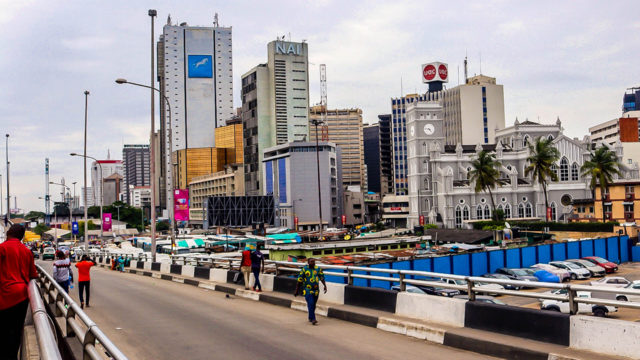As multinational companies continue to leave Nigeria due to economic upheavals, a growing number of both local and foreign firms are defying the odds, expanding their operations, and investing in new projects. These businesses are determined to navigate challenges like surging inflation, a depreciating currency, insecurity, and power shortages by sourcing raw materials locally and increasing production.
Since early 2023, Nigeria has experienced a significant exodus of companies following sweeping reforms in the energy and foreign exchange markets. These reforms have disrupted the business environment, triggering economic shocks that have hurt corporate profitability. According to an analysis, major firms listed on the Nigerian Exchange (NGX) collectively faced a forex loss of about N1.7 trillion, with some of these losses unrealized. The consumer goods sector has been the most affected by these macroeconomic difficulties.
The Manufacturers Association of Nigeria (MAN) reported that 767 manufacturing companies shut down in 2023, while another 365 faced severe challenges due to high inflation, rising interest rates, and currency volatility. Capacity utilization in the manufacturing sector has dropped to 56%, and the inventory of unsold goods has increased to N350 billion.
However, despite the tough operating environment, resilience is evident in the increase in Foreign Direct Investment (FDI) inflows, which rose by 67.69% in 2023. This shows that some firms are still confident in Nigeria’s long-term potential, despite the difficulties.
Key Expansion Projects and Investments:
– Dangote Industries Limited (DIL): In February 2023, Dangote signed a $585 million agreement with China Sinoma International Engineering to build a new cement plant in Itori, Ogun State. The plant will have a capacity of 6 million tons per year, with two production lines that will produce 12,000 tons of cement daily. This project will increase Dangote’s production capacity in Nigeria to 42 million tons annually by 2025 and 57.6 million tons across Africa.
-Nestlé: Despite economic setbacks, Nestlé is investing heavily in local operations. The company is developing a new distribution center for its Milo and Golden Morn products at its Flower Gate factory in Sagamu, Ogun State, and expanding production lines at its factories in Sagamu, Agbara, and Abaji. The project, managed by Vita Construction, is expected to cost around N60 billion. Nestlé’s 2023 report shows a total investment of N61 billion for this expansion.
-BUA Cement: In 2023, BUA Cement secured a $500 million loan from the International Finance Corporation (IFC) for its production facility in Sokoto, further demonstrating the company’s commitment to expansion despite Nigeria’s challenging economic climate.
– Eraskon Nigeria: Eraskon is building a $50 million lubricant and chemical blending plant in Gbarain, Yenagoa, Bayelsa State. With a production capacity of 64,000 liters per day, the plant was more than 70% complete by mid-2024.
-Transcorp Hotel: Transcorp is investing N1.8 billion in a new event center at its hotel and is finalizing financing for a 25-storey hotel in Ikoyi, Lagos.
Additional moves include Diageo Plc’s sale of its controlling stake in Guinness Nigeria to Singapore-based Tolaram Group Inc. and the expansion of the Fouani Group’s diaper and sanitary pad plant, which replaced a Procter & Gamble facility that shut down. Hayat Kimya, a Turkish firm, has stepped in to fill the void left by P&G with its premium Molfix diaper brand.
The withdrawal of Shell from onshore operations in Nigeria saw a group of Nigerian investors, Renaissance Group, purchasing Shell’s onshore assets. Similarly, EnjoyCorp Limited acquired Heineken’s majority stake in Champion Breweries, reflecting continued investor interest in Nigeria despite the economic challenges.
Expert Opinions and Concerns:
While these expansions reflect resilience, experts caution that the Nigerian government must address structural issues to sustain investor confidence.
Abolo, an industry expert, emphasized that capital importation remains heavily skewed toward Foreign Portfolio Investment (FPI), highlighting the need for long-term stability to attract more direct investments. He suggested structural reforms to improve macroeconomic stability and advised the government to focus on reducing inflation, boosting foreign exchange liquidity, and lowering interest rates to make borrowing more affordable. Abolo also called for increased infrastructural development, a more business-friendly regulatory environment, and targeted incentives like tax breaks and special economic zones to attract foreign investors.
Frank Onyebu, a former chair of MAN, noted that Nigerians are known for their resilience, which has enabled businesses to survive in such a difficult environment. However, he warned that many businesses are at a breaking point. “Most businesses are just hanging on by the strings,” Onyebu said, urging the government to provide massive infrastructure support and offer tax incentives to manufacturers to ensure their survival. He argued that by supporting these firms, the government could create jobs for millions of unemployed Nigerians and boost economic growth.
Daniel Dickson-Okezie, an SME analyst, praised the increase in FDI and the expansion of both local and foreign firms. However, he questioned the sustainability of these investments, citing the need for the government to create a stable and conducive environment for business growth. He warned that without significant improvements in critical areas such as inflation, employment, power, and security, the current wave of investments could be short-lived. “What is the confidence level that these investments will be sustained?” he asked, stressing the need for long-term economic improvements.
Dickson-Okezie also highlighted that many Nigerians are more concerned about immediate needs, such as food prices and access to basic services than economic statistics. He emphasized that improvements in the energy, petroleum, and security sectors would inspire greater confidence in the economy and encourage sustained growth.
“If we see positive developments in these sectors, then we can expect sustained growth and increased investor confidence,” Dickson-Okezie concluded, calling for more visible government action to tackle the issues that continue to hinder the business environment in Nigeria.
In conclusion, while multinationals may be leaving Nigeria, the resilience of local and foreign firms investing in the country highlights the potential for recovery and growth. With the right policies and government support, these investments could help Nigeria overcome its economic challenges and drive long-term development.










